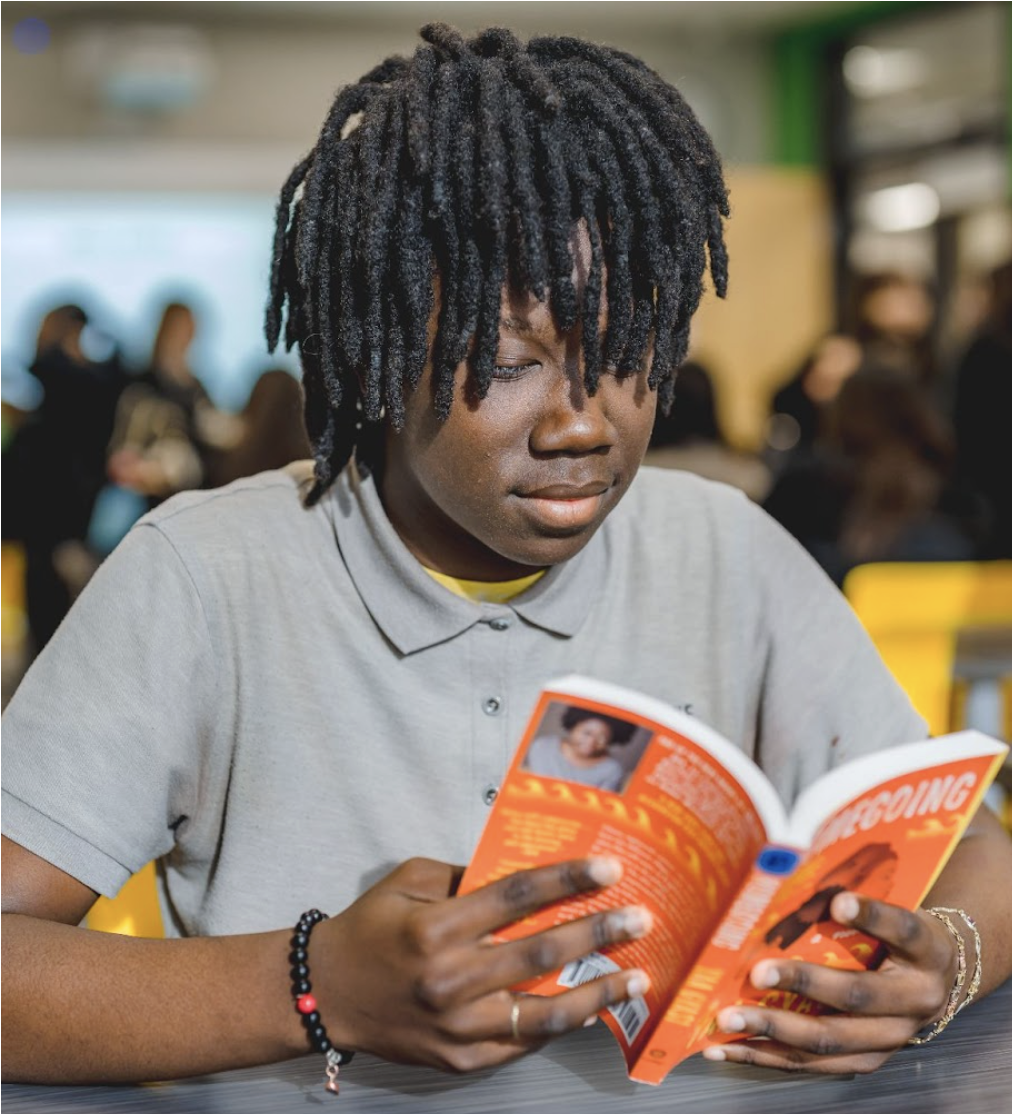Leave your Desk Behind

When does a high school English teacher have their greatest impact?
When they leave their desk and their laptop behind, sit with their students individually, and conference and discuss the text that they are reading. For a teacher with 20, 25, or even 30 or more students in one class, it can seem impossible to do this kind of work. But we can structure class time to make these short conferences not just possible but typical so that teachers and students can benefit from the highest impact and most satisfying learning experiences every day.
Recently, I observed Ms. Laboy, a ninth grade English teacher making the most out of these short individual conferences. Her students had just read about the moment in Langston Hughes’ autobiography, The Big Sea, when Hughes had tossed his most prized possessions, his books, into the ocean. Ms. Laboy told her students to write silently for 15 minutes, and explain Hughes’ dramatic action.
After watching them write for a few minutes, Ms. Laboy, with her book in one hand and a stool in the other, spotted Antonio slouching in his seat and twirling his pen. She put her stool down right next to him, and read the sentence he had written: “The reason why Langston threw his books overboard was because he generally wanted to … start fresh.”
Ms. Laboy looked at Antonio and said, “Huh. ‘Fresh.’ That’s an interesting choice. What made you think of ‘fresh’?”
Antonio sat up, looked at Ms. Laboy, and then at the page, “Here, where he says ‘the attics and basements in Cleveland’. He wants out of that dirty city.”
Ms. Laboy said, “Oh yes. That’s interesting. Basements can be dirty. Focus on that.”
Then, she got up and surveyed the room. In the next ten minutes, she conferenced with ten students. With one, she simply pointed to a phrase and said, “Oh my!” in response. With another student, who had written nothing, Ms. Laboy asked her to pick out a sentence and read it to her. After listening, Ms. Laboy asked her what stood out.
The student replied, “Hughes was a baby for throwing his books into the ocean.”
The teacher nodded her head and said, “Oh. I see. It was a tantrum. Did anything else in that passage make him look like a baby?”
While these conferences were quiet, most of her students seemed to notice that she was responding to other students’ observations about the text. Each time she responded to what a student wrote, their peers sat up a little straighter and wrote a little more intently. We can guess that they thought, “I am reading this book too. I can get Ms. Laboy to sit next to me and react to what I have to say.”
These brief, authentic conversations, in which the teacher and student discuss specific passages from a shared text, is a platform that enables adolescents to have an impact on other readers—even an adult expert. Study after study shows that having an impact is what adolescents crave. The work of administrators, coaches, and specialists should all focus on making these moments possible and as frequent as possible.
Riveting Results’ ninth and tenth grade ELA programs can help. Our program empowers teachers to leave their desks behind.
We want to know what you think.
We recommend you read these next
Meet The Team
The Riveting Results program works because it incorporates feedback from dozens of educators experienced in the classroom and in running schools. Unlike other programs that primarily use academic experts to review materials, Riveting Results gets feedback from educators who have actually used Riveting Results in the classroom to develop students reading and writing performance.
contact us



































